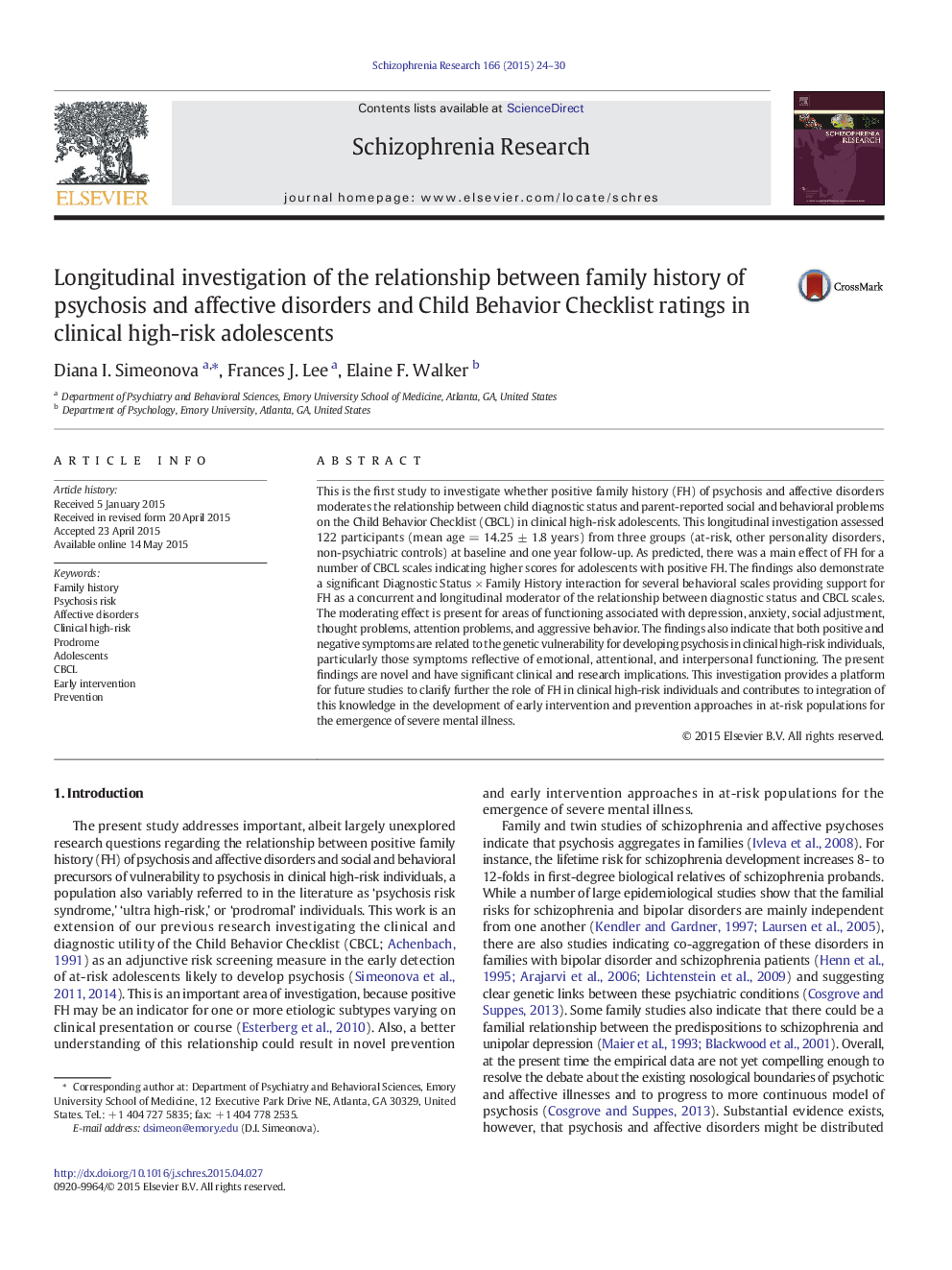ترجمه فارسی عنوان مقاله
تحقیقات طولی رابطه بین سابقه خانوادگی جنون و اختلالات عاطفی و اعتبارهای فهرست رفتاری کودک در نوجوانان در معرض خطر بالینی
عنوان انگلیسی
Longitudinal investigation of the relationship between family history of psychosis and affective disorders and Child Behavior Checklist ratings in clinical high-risk adolescents
| کد مقاله | سال انتشار | تعداد صفحات مقاله انگلیسی |
|---|---|---|
| 74864 | 2015 | 7 صفحه PDF |
منبع

Publisher : Elsevier - Science Direct (الزویر - ساینس دایرکت)
Journal : Schizophrenia Research, Volume 166, Issues 1–3, August 2015, Pages 24–30
ترجمه کلمات کلیدی
سابقه خانوادگی؛ خطر جنون؛ اختلالات عاطفی؛ بالینی در معرض خطر؛ پیش درآمد؛ نوجوانان؛ مداخله زودهنگام؛ جلوگیری
کلمات کلیدی انگلیسی
Family history; Psychosis risk; Affective disorders; Clinical high-risk; Prodrome; Adolescents; CBCL; Early intervention; Prevention

